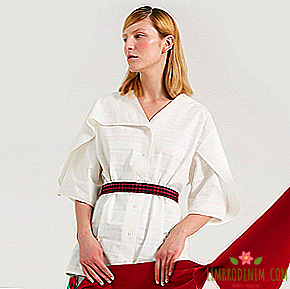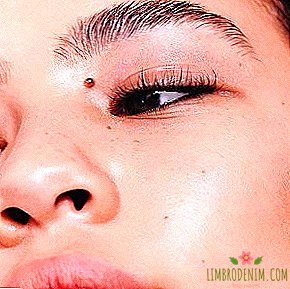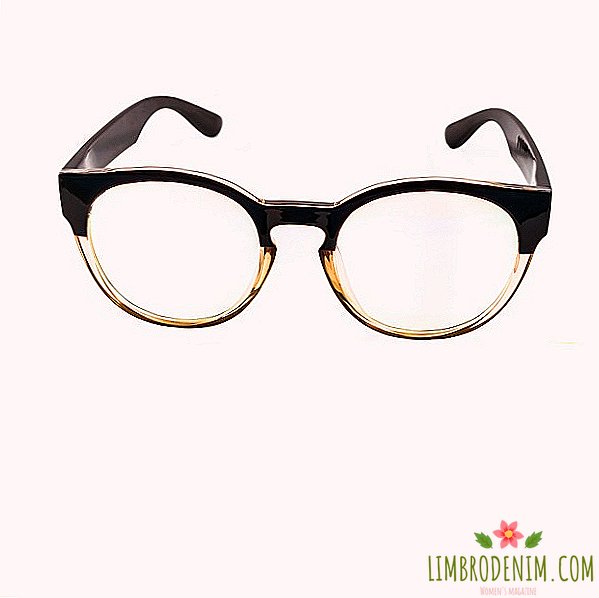The game of distortion: Why camera smartphone retouch our selfie

Dasha Tatarkova
A few weeks ago blogger and health coach Mel Wells I posted it on Instagram with my new Samsung Galaxy S7. As it turned out, in the default settings of the front camera, the default was a "beauty filter", which was turned on at position eight. He gave a very strong blur of skin texture, so that the picture could not see any freckles, moles or acne - no other details. For comparison, Welles posted another photo, without any retouching and filters. In order to continue taking selfies without “improvements,” the girl had to specifically disable the “beautiful” setting that her smartphone imposed on her.
In the caption to the photo, Wells addressed the manufacturing company: “It turns out that anyone who turns on the smartphone, in fact, hears:” Hello, we are Samsung and we think that you will be much more beautiful if we take your selfie for you "Thank you, @samsungmobile, for shaming me for my appearance." In the context of the growing talk of bodipositive and love for one's appearance, regardless of whether it meets imposed standards or not, the story of Wells looks wild. The blogger post has collected one and a half thousand likes and hundreds of supporting comments, and the news feeds have been filled with the headlines "Samsung thinks you are ugly."
Samsung themselves responded to the indignation of Wales dry and breech: they say, the company offers users of their devices a lot of settings and many buyers love the beauty filter. At the same time, Samsung did not comment in any way on what the “beauty” setting is in smartphones by default. Obviously, they wanted the best - it turned out clear how. In its policy, Samsung is not alone: the mobile phones of the Chinese electronic giant Xiaomi also blur and brighten the image, as if the skin has been rubbed with an eraser, and in Xiaomi phones this option cannot always be turned off.
What made Korean Samsung think that it’s vital to take pictures of their customers with “preening” is easy to understand. In Asia, and especially in South Korea, the cult continues to reign smooth as silk, white skin, large eyes and a pointed oval face. Girls lie on the operating table for plastic as calmly as they go to see a beautician. In the patriarchal Korean world, which almost does not recognize the diversity of beauty, such a function of a smartphone is seen as a good service, and not an intervention in personal space.

Since the advent of the portrait idea, formats and tools have imposed restrictions on us. Having received the means to show ourselves to the world, we deliberately sought to capture ourselves in the most favorable light. Portraits were drawn in the "lucky" perspective, the best clothes, with amended appearance in accordance with the requests of the client. Photos from the very beginning were retouched, whether they are daguerreotypes or modern digital ones, run through Photoshop. Even selfies are almost never without treatment - most likely, and they went through some kind of filter. What we focus on in doing this, by doing this - the dominant tastes of society or personal preferences - is a separate and complex issue. Much more important than the other: do we edit our portrait by ourselves? Because as soon as this choice is made for us, the crime against free will begins.
It would be possible to write off the Samsung beauty filter to the company's desire to compensate for the imperfection of the device. Obviously, the front cameras of smartphones are still for the most part weak, and blurring the image may be an attempt to overcome the extra noise and improve the overall quality of the photo. However, all this is only the technical side of the problem. We really edit our portraits and gratefully accept the advice of the masters of the genre - from Kim Kardashian and Tess Holliday - on how to make a “perfect” selfie. Another thing is that, applying additional efforts for the "perfect" selfie, a person decides in which position to stand and under what light to be photographed. The more personal freedom in choosing our appearance, the more freedom we have inside - no matter what the circumstances, we have the right to independently decide what to do with them.
The idea of individual beauty applications designed to “improve” the hero of photography is not new. We ourselves tested similar ones for Android and iOS - and the results in most cases were frightening, first of all, about the extent to which sample ideas about women’s appearance are embedded in application settings. In Asia, to improve their appearance on the selfie is a real boom. In the local market there are many separate applications that need to take care of the “perfect” complexion and skin texture. The same trend goes further: long before the advent of self in Japan, photo booths called purikura were incredibly popular. Taking photos, applying filters and inscriptions on them in such machines is standard entertainment, and not only for teenagers. That's just every year the features that can be edited, it becomes more and more, so that purikura-machines offer to make the eyes bigger, and the face only plastic. So the imposition of standards sneaks up not only in phones, but also on the streets, and all together this is a symptom of a truly global problem.

The story of the camera of the new Samsung smartphone clearly shows what the dictates of the “ideal” appearance lead to. You can somehow relate to bodipositive, but love for your body, or at least the path to this love is without exaggeration one of the most important ideas of our time. Beauty standards have changed throughout the history of mankind and, most likely, will change more than once. Fashion and trends are a normal reaction to world diversity, however, it is also important how adequately we treat them. To bring up on a pedestal any appearance is to deny the very diversity from which it was born.
Samsung's beauty filter is dangerous in the first place by the fact that it makes everyone equally “beautiful” and does not bother to give users the choice to simply remain themselves. Today, the Samsung Galaxy S7 is one of the most popular phones in the world. This means that hundreds of millions of people from all over the world will turn on their new smartphone, take a selfie, see the retouched image and take it as a given. For advertising, this is the usual pick-up move: to make the consumer believe in his inferiority, so that he can buy a product that will "help" him. However, the mere existence of the approach does not make it legitimate. Manipulations remain manipulations that need to be understood in order to change the narrative. After all, the longer artificial standards reign, the more they are fixed.
This imposition of "ideality" goes on all fronts: from sexist advertising to the image of the family in the media. However, the more popular these completely unnecessary ideals, not invented by us, the more miserable we become. With each generation, the number of people, and in the first place women, who are dissatisfied with their bodies, grows - there were no such figures even 20, 30 years ago. This leads to depression, food and many other disorders - in general, groundless dissatisfaction with themselves. So let us decide for ourselves whether to retouch our acne or not - and if so, only by our own will, when this will be better for us, not worse.




